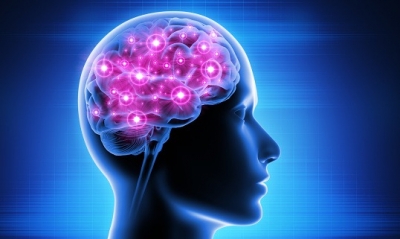World Brain Day is observed on July 22 every year to raise awareness about brain health and neurological conditions.
Sleep is often the overlooked aspect of our daily routine, and plays a crucial role in maintaining a healthy brain. A good night’s sleep is essential for our brain to function at its best.
“When well-rested, the brain demonstrates extraordinary resiliency. Sleep is an essential component of the restorative process since it helps to consolidate memories, remove toxins, and reorganise brain networks. These crucial processes are compromised when not getting enough sleep, and cognitive deficits start to show,” Dr. Vipul Gupta, Chief Neurointerventional Surgery & Co-Chief – Stroke Unit, Artemis Hospital, Gurugram, told IANS.
“Sleep deprivation impairs attention, focus, and task efficiency, reducing overall productivity. It compromises our ability to learn and retain information, hindering educational achievements. Insufficient sleep also affects emotional regulation and mood, leading to negative emotions like irritability, anxiety, and depression,” Dr. Anand Kumar, Professor & Head, Dept. of Neurology, Amrita Hospital, Kochi, told IANS.
Sleep also plays a part in the risk of dementia. Studies have found a correlation between chronic sleep deprivation and an increased risk of developing Alzheimer’s disease later in life. Sleep-deprived individuals may be more vulnerable to the accumulation of beta-amyloid plaques, which can eventually lead to cognitive decline and memory problems.
“One of the remarkable mechanisms during sleep is the glymphatic system, a waste clearance system that operates in the brain. During sleep, the glymphatic system works like a drainage, flushing away harmful toxins and waste products that accumulate in the brain during the day. This cleansing process is vital for maintaining brain health and optimal cognitive function,” Dr. Karishma Jethmalani, Neuropsychologist, Rehabilitation and Sports medicine, Sir H.N. Reliance Hospital, told IANS.
“However, when we don’t get enough sleep or are sleep deprived, this cleaning process becomes disrupted. The brain’s ability to remove toxic substances is compromised, leading to a buildup of harmful proteins, including beta-amyloid, which is closely linked to Alzheimer’s disease,” she added.
Concern has been expressed over the diagnosis of dementia in young people as our society deals with an extraordinary prevalence of sleep problems and insufficient sleep.
Maintaining good sleep hygiene is essential for restful sleep and cognitive well-being.
Excessive use of mobile phones and screens at night disrupts our brain’s natural sleep signals due to the blue light emitted by these devices, the doctors said.
“Adopting sound sleep habits is difficult due to the appeal of social media, digital entertainment available around-the-clock, and infinite distractions. A perfect storm for sleep deprivation is created by the breakdown of regular sleep rhythms and the invasion of electronic devices into the bedroom,” Gupta said.
Mental stress is another factor contributing to sleep disturbances. One of the key contributors to sleep disturbances is excess worry about the activities of the next day.
“This preoccupation prevents deep sleep, which is vital for feeling energised and maintaining cognitive health. Shallow sleep, which occurs when we are stressed or anxious, is not sufficient for rejuvenation and energy restoration,” Kumar said.
To improve sleep quality and cognitive functioning, it’s crucial to reduce excessive worrying and engage in relaxation techniques.
Prioritising 7-8 hours of quality sleep and adopting good sleep practices are vital for overall cognitive health and well-being.
Minimising screen time before bed and managing stress levels can significantly enhance the quality of sleep and boost cognitive performance during the day, the doctors advised.
(Rachel V Thomas can be contacted at rachel.t@ians.in)
–IANS
rvt/pgh
